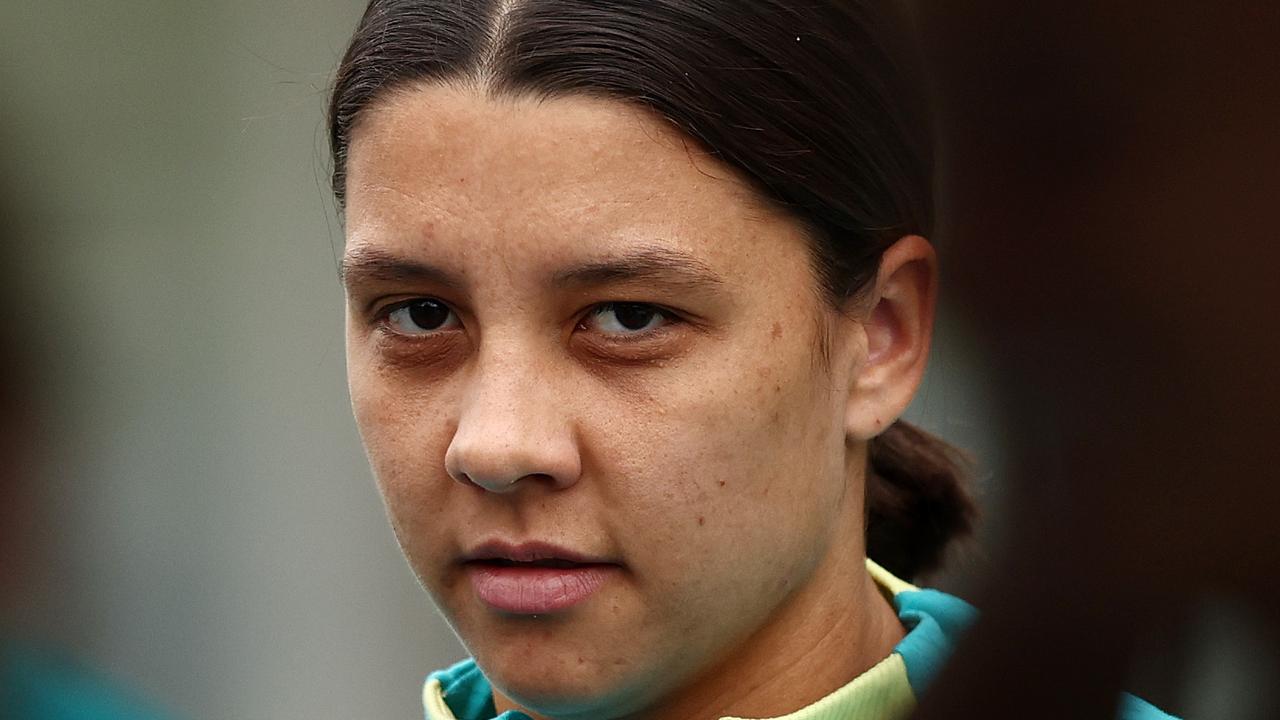Talking Point: Born into cruelty, Brad has survived despite everything, yet we still fail him
SUE HICKEY: This talented man has worked so hard, yet society has failed him at every turn. Let’s change that.

Opinion
Don't miss out on the headlines from Opinion. Followed categories will be added to My News.
THE man who sits opposite me in his shabby little housing department home has been broken so many times by the very systems meant to protect him. Through the sadness I see a man with so much intelligence, artistic genius and genuine will to start a new life. He wants to contribute to society and earn his own income.
My friend, who I’ll call Brad, is crippled by his CPTSD (chronic post-traumatic stress disorder). He was born into a cruel family and authorities sent him to foster homes. He was sent to an infamous institution for boys at the age of four. The sexual abuse was horrific, as were the physical beatings and deprivation of food and comfort.
He feels cheated by governments, robbed of a woman to love and children to raise and identifies as a forgotten Australian.
At 16, Brad left the institution, almost illiterate and with no real concept of how to fend for himself. His journey over the next few decades was chaotic as he moved among prostitutes, drug dealers and criminals in an effort to survive. He has no prison record and detests illicit drugs. Fate intervened when someone befriended Brad and helped him to go to university, where he was assisted with reading and writing. Study allowed him to express his pain in beautiful pottery and pieces of art. He graduated with a fine arts degree.
Each conversation with this amazing man leaves me in awe. Brad needs glasses but cannot afford them, and is not entitled to an allowance for another year. Nevertheless, he is well read, up to date with world events, has a staggering knowledge of history and, when feeling safe, has a fabulous sense of humour.

After more than a year in a draughty country shed, with no running water, insulation or sanitary provisions, he sought assistance from the Housing Department. To some extent, Brad was one of the lucky ones and classified a priority case due to his history of mental illness.
The only property available was in a rural housing complex fraught with troubled souls. He was greeted with a smashed front door. The plumbing was dodgy and when his neighbour flushed the toilet, the excrement came up in Brad’s shower. I managed to get this fixed, despite tenants being advised the pipes were old and they would “have to put up with it”.
Although Brad would be considered to have stable housing, this is not the case. As in many housing complexes, the tenancy mix creates instability through infighting, drug use and stealing. For someone with complex mental issues this creates fears about leaving the house in case their precious possessions are stolen or they are assaulted on returning from shopping.
Acts of revenge and intimidating behaviour such as knocks on doors and windows smashed are common.
My greatest concern as I lobby almost every day for change is that as a relatively rich country how are we treating people with this type of suffering? In six months of assisting Brad, I have witnessed countless let-downs by various systems.

Last year Brad was accepted into the NDIS system under the classification of “psychosocial disability” (who would have thought this title was acceptable today?).
He was assisted by two full-time support workers as part of his previous mental health program, but this lost funding in transitioning to the NDIS. He has had no support for many months.
Recently, the NDIS program received a damning review by the Ombudsman stating the system is seriously deficient and recommending 29 urgent improvements. It noted people have died while waiting for their plans and that reviews of plans can take up to nine months.
Inadequate staffing and lack of capacity at many providers means cases such as Brad’s cannot be serviced as everyone is grappling to cope. Finding suitably trauma-informed staff is a serious issue.
Brad’s plan money has paid for service fees, but no actual service has been provided! He has been unable to access any of the opportunities he believes will help him in his journey of recovery.

Coffee shop meetings arranged to discuss Brad’s plan have led him to stay up all night preparing, only to find no one turns up or rings to explain. Annoyingly, this is common. Numerous promises lead to nothing when it is discovered services are unavailable. Rigour on the quality of the providers is inadequate and some people most in need are re-traumatised.
Brad’s journey through mental health providers has added to his burdens. Two psychiatrists promised to write letters for him to have his NDIS plan reviewed. After Brad had to revisit his history in debilitating detail, letters weren’t provided. Buoyed by the hope of help, he descended the chasm of depression when this failed to eventuate.
Without a successful review, Brad will not get a new computer to access his treatment, gain assistance he needs for reconnection to his art, job opportunities or to manage his transport needs.
Brad’s anxiety means he struggles to use bus transport to the city to access vital services. He has used his taxi allocation and often ends up walking 30km each direction.
I am a well-educated person and a member of government but despite persistent efforts, I fight every day against systems that allow our most vulnerable to slip through the cracks. I am confident there are many committed public servants who desperately want to help and who would love to see change but are disillusioned by systems that do more harm than good. I will do everything in my power to get Brad a new NDIS plan, more suitable housing and access to his art. My worry is, how many more Brads are out there? How many more families are struggling with the desperate shortage of assistance for loved ones suffering mental illness? How many more people do we break, before we rise up as a community and insist on more dedicated resourcing in this critical area of health? Failure to do so will have intergenerational consequences for us all.
The State Government created a Mental Health Integration Taskforce to address weaknesses in our own system. Implementation has begun and this will complement the NDIS, but will not resolve the identified faults of this national program.
Sue Hickey is a Liberal member for Clark.


